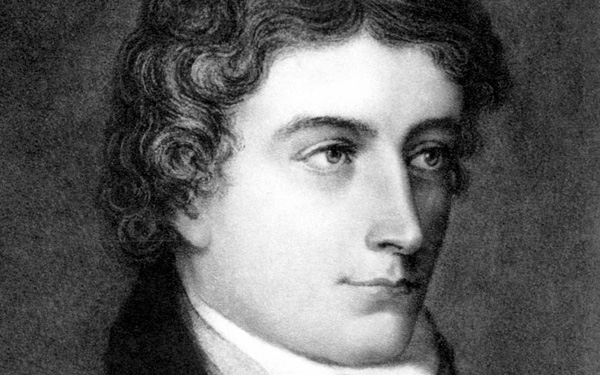About the poet:
James Falconer Kirkup (England, 23 April 1918 – Andorra, 10 May 2009) was a prolific English poet, translator and travel writer. He was born on 23rd April 1918. At the beginning of his career, he taught at The Downs School in Colwall, Malvern, where W.H. Auden had earlier been a master. He wrote his first book of poetry, The Drowned Sailor at the Downs, in 1947. Between 1950 and 1952, he was the first Gregory Poetry Fellow at Leeds University, making him the first resident university poet in the United Kingdom.
Kirkup left England in 1956 to live and work in Europe, the Americas, and the Far East. In Japan, he found acceptance and appreciation of his work, and he settled there for 30 years, lecturing in English literature at several universities.
Kirkup came to public attention in 1977, after the newspaper Gay News published his poem “The Love That Dares to Speak Its Name”, in which a Roman centurion describes his lust for and attraction to the crucified Jesus.
Kirkup’s published works encompassed several dozen collections of poetry, six volumes of autobiography, over a hundred monographs of original work and translations and thousands of shorter pieces in journals and periodicals. His skilled writing of haiku and tanka is acknowledged internationally. He became a Fellow of the Royal Society of Literature in 1962.
Kirkup died at Andorra on 10th May 2009.
About No Men are Foreign:
“No men are Foreign” by James Kirkup was published as the first poem of the collection bearing the same name in the year 1966.
The Setting of No Men are Foreign:
This poem is set in the arena of the human mind. The human mind is very susceptible to being manipulated. No child is aware of xenophobia (that is, the fear of foreigners) from birth. This fear is in fact instilled into the human mind as the child grows older and reaches adulthood. This fear is instilled by military and religious groups. The poet’s attack is directed specifically against the armies of nations that fight with other nations on the basis of wanting ownership over disputed lands. He says that such armies teach us to hate people who have been descended from the same ancestors as us, and who are therefore our own brothers. By being manipulated through the brain-washing techniques of such armies, we end up endangering the survival of the human species on earth and the very destruction of the world as we know it. That is why the poet encourages readers to push xenophobia out of their minds.
Summary of No Men are Foreign:
The poem consists of 20 lines in total. These lines are not divided into stanzas. However, they are divided into meaningful segments here for the purposes of this summary in order to make the poem easier to understand and follow. This poem is written in the first person, hence we can assume that the speaker of the poem is the poet himself.
Lines 1 – 4:
Remember, no men are strange, no countries foreign
Beneath all uniforms, a single body breathes
Like ours: the land our brothers walk upon
Is earth like this, in which we all shall lie.
In these lines, the poet tells his readers that men are not different from each other simply on the basis that they hail from separate countries. They may fight for the army of this nation or that one, but underneath the uniform, they are all essentially similar. Your opponent army’s soldiers live and breathe just as you do. Most fights between the men of one country and another result from disputes over which piece of land belongs to which nation. However, all the land on earth is the same. Moreover, every man will have to lie in the earth at one time or the other. That is, all men have to die and all pieces of land are potential graveyards in that they can occasion a war for their occupation.
Lines 5 – 8:
They, too, aware of sun and air and water,
Are fed by peaceful harvests, by war’s long winter starv’d.
Their hands are ours, and in their lines we read
A labour not different from our own.
In these lines, the poet provides further evidence of the unity of man. He says that those who hail from countries other than our own also depend, like we do, on sun and air and water for their survival. They too have seen periods of peace and periods of war. In times of peace, they have had the assurance of a square meal every day, just like us. Again just like us, war has been a long winter to them, when food is scarce and every moment brings with the dread of an approaching famine. They look just like us and are descended from the same ancestors as we are.
Lines 9 – 12:
Remember they have eyes like ours that wake
Or sleep, and strength that can be won
By love. In every land is common life
That all can recognise and understand.
In this stanza, the poet entreats his readers to keep in mind the fact that our opponents sleep and wake just like we do, and follow the same pattern in life as us. Every human being has an inner resource of strength that they can use to help their fellow beings. However, that resource can only be unlocked by following the path of love. Only when we love someone can we stand up for them. That is why it is absolutely necessary for every man to love his fellow beings without creating divisions amongst them. Despite the differences between various nations, there is one thing that they all have in common. The common people live the same kind of life everywhere. Therefore, you can recognize the presence of that life no matter where you travel in this wide world.
Lines 13 – 15:
Let us remember, whenever we are told
To hate our brothers, it is ourselves
That we shall dispossess, betray, condemn.
In this stanza, the poet protests against the efforts of military and religious groups that encourage us to wage wars against those of other persuasions. The poet believes that those groups are misguiding their followers. They are asking their followers to hate people without realizing that it is our own brothers that we must hate. This is a form of self-destruction for the poet. Any hatred that we may harbor for any member of the human race is tantamount our betrayal towards the species and our condemnation of its future. If we kill people of any other nation, we are in fact endangering the human species as a whole and its survival on earth.
Lines 16 – 17:
Remember, we who take arms against each other
It is the human earth that we defile.
In this stanza, the poet provides further implications of war. He says that if we, the guardians of the earth, were to die out as a result of the war, then there would no one left to take care of the home that our ancestors had passed down to us. We would then have nothing to pass down to our own future generations.
Lines 18 – 20:
Our hells of fire and dust outrage the innocence
Of air that is everywhere our own,
Remember, no men are foreign, and no countries strange.
In this stanza, the poet compares wartime with hell. In war as in hell, there is fire and smoke everywhere. As a result of this, the earth is becoming poisoned. The very air that we breathe is becoming impure and will not be able to sustain human life for much longer. That is why the poet encourages us not to wage war on our fellow men thinking they are foreigners and that their countries are unlike our own.
Some online learning platforms provide certifications, while others are designed to simply grow your skills in your personal and professional life. Including Masterclass and Coursera, here are our recommendations for the best online learning platforms you can sign up for today.
The 7 Best Online Learning Platforms of 2022
- Best Overall: Coursera
- Best for Niche Topics: Udemy
- Best for Creative Fields: Skillshare
- Best for Celebrity Lessons: MasterClass
- Best for STEM: EdX
- Best for Career Building: Udacity
- Best for Data Learning: Pluralsight














